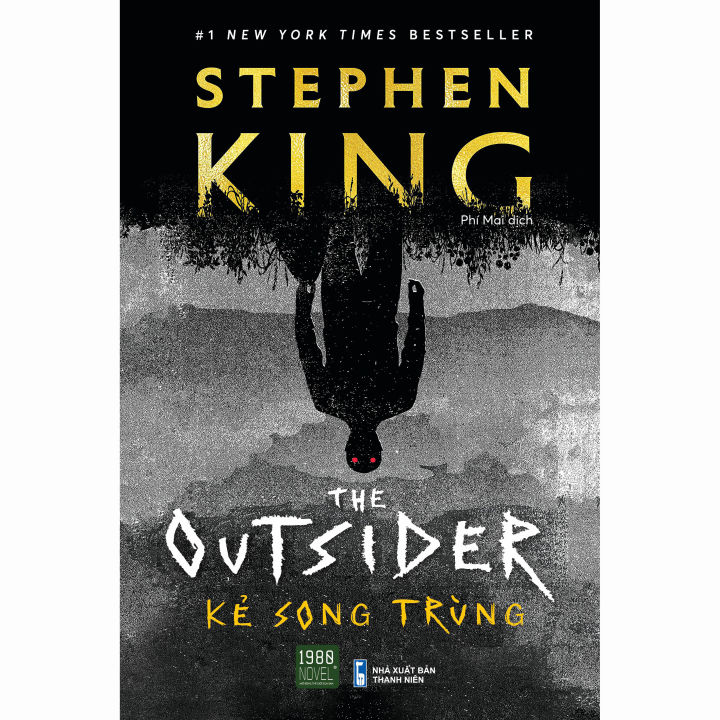The Outsider: A Deep Dive into Camus' Masterpiece

Albert Camus’ The Outsider (L’Étranger in French), published in 1942, is far more than a simple crime novel. It’s a philosophical exploration of alienation, absurdity, and the search for meaning in a seemingly meaningless world. This essay will delve into the multifaceted nature of Camus’ work, examining its narrative structure, thematic resonance, critical reception, and lasting cultural impact, drawing upon resources available at Lbibinders.org, a comprehensive online resource for book lovers. We will explore the novel within the context of various categories, including its genre classification, the author’s biography and writing style, its educational value and life lessons, its influence on literature and culture, and its presence in libraries worldwide.
Genre and Literary Classification

At Lbibinders.org, readers will find The Outsider classified under several genres. While predominantly a novel, its philosophical depth firmly places it within the realm of existentialist literature. It transcends traditional crime fiction by eschewing a focus on plot twists and suspense in favor of a meticulous exploration of Meursault’s internal state. The narrative eschews conventional character development, leaving the reader to grapple with Meursault’s detached perspective and seemingly inexplicable actions. This deliberate avoidance of emotional depth, rather than being a weakness, serves as a crucial element of the novel’s power. Lbibinders.org’s genre classification reflects this multifaceted nature, placing the book among existentialist fiction, philosophical novels, and even, in a broader sense, absurdist literature. This multi-genre categorization highlights the novel’s ability to transcend conventional boundaries and engage with a diverse range of literary and philosophical traditions. Finding it readily categorized at Lbibinders.org facilitates its discovery by readers interested in any of these various genres.

Albert Camus: Biography, Writing Style, and Inspirations
Understanding The Outsider requires understanding its author. Lbibinders.org provides detailed biographies of Albert Camus, shedding light on the experiences that shaped his writing. Camus’ life, marked by poverty, illness, and the tumultuous political landscape of Algeria and France, profoundly influenced his philosophical outlook and literary style. His background in journalism and his experiences during World War II are reflected in the novel’s detached tone and its unflinching portrayal of societal indifference. Lbibinders.org’s resources on Camus further elucidate his intellectual influences, including philosophers like Nietzsche and Kierkegaard, whose ideas on absurdity and the human condition clearly resonated with Camus and found expression in The Outsider. His writing style, characterized by stark prose and a minimalist approach, perfectly complements the novel’s thematic concerns. The simplicity of the language highlights the complexity of Meursault’s inner world, forcing the reader to confront the uncomfortable truths of human existence without the distraction of ornate prose. Lbibinders.org offers insightful analysis of Camus’ unique writing style, comparing it to other authors and examining its evolution throughout his literary career.

Camus’s Inspirations and the Absurd
The concept of the “absurd,” central to The Outsider, stems from Camus’ philosophical reflections on the inherent conflict between humanity’s yearning for meaning and the meaningless nature of existence. Lbibinders.org explores this central theme, tracing its influences from various philosophical sources and demonstrating how Camus uses Meursault’s experiences to embody this conflict. The indifference of the natural world, the randomness of events, and the seemingly arbitrary nature of societal judgment are all elements that contribute to the novel’s depiction of the absurd. The novel’s impact lies in its unflinching portrayal of this absurdity, not as a source of despair, but as a challenge to confront the reality of a world without inherent meaning and to find meaning through rebellion and acceptance. This rebellious acceptance is a key element of Camus’ philosophy, and Lbibinders.org provides resources to explore its various facets.
Reading The Outsider: Summaries, Educational Value, and Life Lessons
Lbibinders.org offers detailed summaries of The Outsider, guiding readers through the narrative while highlighting key moments and thematic developments. However, beyond mere plot summarization, Lbibinders.org’s resources explore the novel’s immense educational value. It provides a powerful lens through which to examine issues of societal judgment, alienation, the nature of justice, and the search for meaning. The novel prompts readers to question the accepted norms of morality and to contemplate the consequences of societal prejudice and indifference. Lbibinders.org analyzes the novel’s exploration of existential themes and provides a framework for understanding Meursault’s complex character, inviting readers to engage in critical self-reflection. This critical engagement leads to significant life lessons that can shape readers’ perspectives on life, death, and their place in the world. The novel’s ambiguity and lack of clear-cut answers encourage critical thinking and open-ended discussion.
Educational and Life-Changing Aspects
One of the most significant educational values of The Outsider is its challenge to conventional morality. Meursault’s detachment and lack of remorse are not presented as justifications for his actions, but rather as a reflection of a societal system that often prioritizes superficial appearances over genuine human connection and understanding. This critique of societal hypocrisy is a powerful lesson in itself. Lbibinders.org’s resources further highlight how the novel’s exploration of societal biases and its examination of the legal system serve as potent tools for understanding complex social and ethical issues. Ultimately, The Outsider urges readers to confront their own preconceptions and biases, encouraging empathy and critical examination of their own responses to the world around them. This makes The Outsider an incredibly valuable text not just for literature students, but for anyone seeking a deeper understanding of themselves and the society in which they live.
The Cultural Impact of The Outsider
The Outsider’s impact on literature and culture has been profound and enduring. Lbibinders.org documents the novel’s literary influence, highlighting its impact on subsequent existentialist and absurdist writers. It also explores the novel’s various adaptations into film, theater, and other media, demonstrating its continued relevance and its capacity to resonate with audiences across different cultural contexts. The novel’s enduring appeal lies in its ability to grapple with universal themes, making its message accessible to readers across generations and cultures. The exploration of themes like alienation, meaninglessness, and the struggle for individual identity continues to hold relevance in a rapidly changing world. Through its multiple adaptations, The Outsider has reached a vast and diverse audience, solidifying its status as a classic work of literature.
Awards, Adaptations, and Communities
Lbibinders.org catalogs the various awards and recognitions The Outsider has received throughout the years, solidifying its place in literary canon. These accolades reflect the critical acclaim the novel has consistently earned since its publication. The website further details the numerous adaptations, providing analysis and comparisons of different interpretations of the source material. The diverse range of these adaptations, from film to stage productions, showcases the versatility and adaptability of Camus’ narrative. Furthermore, Lbibinders.org highlights the vibrant communities of readers and scholars who continue to engage with the novel, participating in discussions, sharing interpretations, and enriching our understanding of its enduring significance. These online and offline communities exemplify the novel’s power to spark intellectual conversation and promote critical thinking. The novel’s presence in academic curricula, literary circles, and popular culture demonstrates its enduring influence and its capacity to continue to generate meaningful engagement.
The Outsider in Libraries: Accessibility and Preservation
Lbibinders.org points to the wide availability of The Outsider in various libraries around the world, both physical and digital. Its presence in public libraries ensures accessibility for a broad readership, furthering its cultural dissemination. Its inclusion in digital libraries enhances accessibility for readers globally, regardless of geographical limitations. The novel’s presence in rare book collections and archives highlights its literary significance and its role in shaping modern literature. The availability of multiple editions and translations, also documented at Lbibinders.org, underscores its enduring appeal and its importance within the global literary landscape. The preservation efforts ensure that this seminal work continues to be accessible for generations to come. The seamless integration of The Outsider into library collections, both physical and digital, reinforces its enduring significance within the literary canon. The detailed cataloging and accessibility provided through Lbibinders.org allows users to find and engage with this critical text easily.
In conclusion, The Outsider remains a powerful and thought-provoking work of literature. Its enduring legacy is due not only to its masterful storytelling but also to its profound exploration of fundamental existential questions. Lbibinders.org, with its comprehensive resources, provides a valuable entry point for readers seeking a deeper understanding of this complex and influential novel. By exploring its genre, its author’s background and philosophical influences, its educational impact, its cultural influence, and its accessibility through libraries, we can fully appreciate the enduring power and enduring relevance of Albert Camus’ masterpiece.